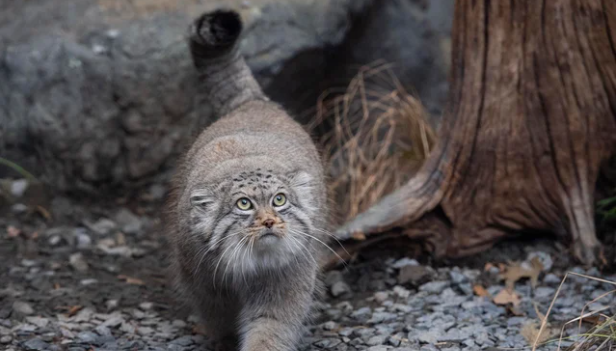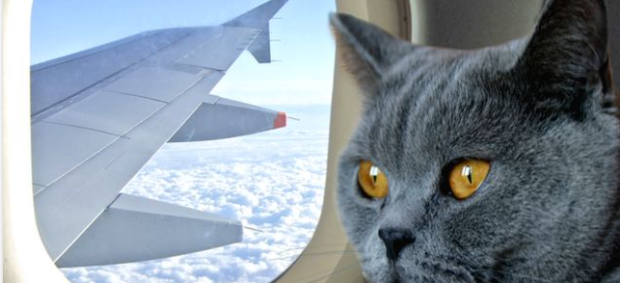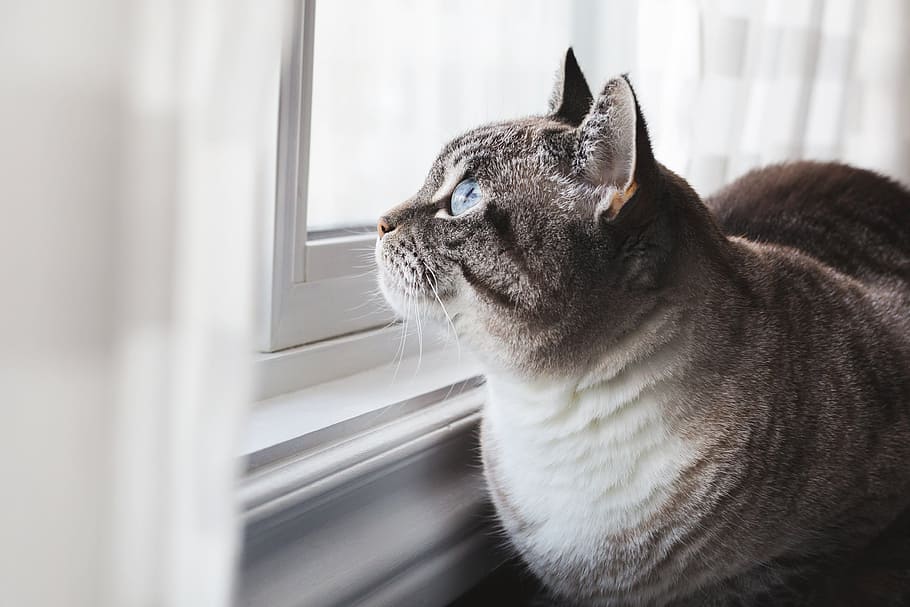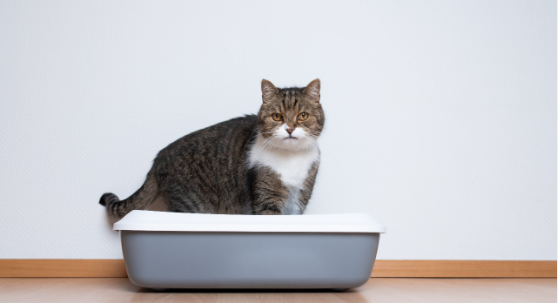What are Monkey Cats?
A Furry Mischief Maker: Introduction to Monkey Cats
Have you ever heard of a monkey cat? If not, you’re in for a treat!
A monkey cat is a unique breed of feline that resembles a tiny monkey. It’s no wonder why people find them fascinating as they are playful and active creatures that love to create mischief.
Check out these fascinating felines that have captured the hearts of many pet owners. Monkey cats are sometimes referred to as “Hemingway cats” or polydactyl cats because they often have extra toes on their paws, making them look like little monkeys when they walk around on all fours.
They are known for their distinct facial features with big round eyes and short snouts, which makes them incredibly adorable. This topic is interesting because monkey cats are not your typical domesticated feline.
They’re unique creatures that have been bred selectively over time by humans for specific traits and characteristics, making them an intriguing subject matter to explore further. Whether you’re a pet owner yourself or just curious about these lovely little animals, we hope that by the end of this article, you’ll have gained some valuable insights into what exactly makes these furry friends so special!
The Basics of Monkey Cats
A New Feline Friend
Have you ever heard of a monkey cat? These unique creatures are becoming more and more popular among pet enthusiasts.
Monkey cats, also known as the “Elf cat,” are a hybrid breed created by breeding together American Curl, Sphynx, and Devon Rex cats. This combination of breeds produces a unique feline that is hairless, has curled ears, and has a personality like no other.
Physical Appearance and Characteristics
Monkey cats have a distinct look that sets them apart from other cats. They are hairless or have very short fine hairs on their body. Their skin can vary in texture from wrinkled to smooth depending on the individual cat’s genetic makeup.
They have curled ears that give them an elf-like appearance and large eyes that give them an almost human-like expression. In terms of personality traits, monkey cats are said to be intelligent, inquisitive, playful, loyal, and affectionate with their owners.
They thrive on attention and love to play games or cuddle up with their owner for some quality time together. However, they may also be reserved or shy when meeting new people.
Origin Story
The first monkey cat was bred in 2004 by Karen Nelson and Kristen Leedom in California when they crossed an American Curl with a Sphynx cat to achieve the distinctive ear curling effect which led to what we now call Elf Cats’in general. Soon after Karen started breeding these hybrid felines under the name ‘Elf Cat’ which gained popularity over time due to its unique looks and traits combined with affectionate personality making it an ideal indoor pet.
Overall these unusual felines make for great pets for individuals wanting something different than your average housecat while still maintaining all the qualities one would expect from owning any kind of cat. In the following sections, we’ll look at the different types of monkey cats and how to properly care for them.
Types of Monkey Cats
Monkey cats come in a variety of types, each with distinct characteristics that make them fascinating. Some of the most common types include the Sphynx monkey cat, the Bengal monkey cat, and the Minskin monkey cat.
Sphynx Monkey Cats
Sphynx monkey cats are hairless, which makes them hypoallergenic since they don’t produce dander. They have a wrinkled appearance and feel like warm suede when touched.
These intelligent and affectionate creatures bond well with their human families and crave attention from them. One unique trait of the Sphynx monkey cat is their high metabolism.
They require frequent meals to maintain their body temperature, so feeding them small meals throughout the day is recommended. Additionally, they can be prone to skin issues due to their lack of fur, making regular bathing important.
Bengal Monkey Cats
Bengal monkey cats are known for their distinctive spotted coat pattern that gives them an exotic look reminiscent of wildcats. They are highly active and love to play, making them great pets for families with children who can keep up with their energy levels. One unique trait of Bengal monkey cats is that they love water!
Unlike most cats who avoid water at all costs, Bengal monkeys enjoy playing in the water and swimming around. They also have a curious nature that leads them to explore every corner of their surroundings.
Minskin Monkey Cats
Minskin monkey cats are a relatively new breed created by crossing Sphynx and Munchkin breeds. They have short legs like Munchkins but retain the hairlessness trait from Sphynx breeds. Their small size makes them ideal pets for people living in small spaces such as apartments.
One unique trait of Minskin monkey cats is that they are highly social and love to cuddle with their human families. They are loyal pets and often follow their owners around the house like dogs.
They require minimal grooming since they don’t have much fur, making them low-maintenance pets. Monkey cats come in different types that vary in appearance, temperament, and needs.
When choosing a monkey cat as a pet, it’s essential to research the specific type to determine if it would be a good fit for your lifestyle and living situation. Understanding the unique traits of each type can help you make an informed decision about which type of monkey cat would make the best addition to your family.
The Care and Keeping of Monkey Cats
Dietary Needs
Feeding your monkey cat a balanced diet that meets their nutritional needs is essential to keeping them healthy. Monkey cats are obligate carnivores, which means that they require a diet that is high in protein and low in carbohydrates.
Many owners choose to feed their monkey cats a raw food diet consisting of meat, bones, and organs, but there are also high-quality commercial cat foods available on the market that meet these requirements. It’s important to note that monkey cats have very sensitive digestive systems and can be prone to food allergies or intolerances.
As such, it’s recommended to introduce new foods slowly over time and monitor your pet for any adverse reactions. Additionally, ensure your monkey cat has access to fresh water at all times.
Exercise Requirements
Monkey cats are active animals with lots of energy to burn off. Providing them with opportunities for exercise and stimulation is essential for their physical and mental well-being. Regular play sessions with toys or interactive games can help keep your monkey cat entertained while providing an outlet for their energy.
Additionally, many owners choose to provide their monkey cats with access to outdoor enclosures or “catios” that allow them to explore the outdoors safely. If you do choose this option, make sure the enclosure is secure and provides adequate shelter from the elements.
Grooming Habits
Proper grooming is important for keeping your monkey cat’s coat healthy and free of matting or tangles. Regular brushing will help distribute natural oils throughout the coat while reducing shedding. Additionally, trimming your monkey cat’s claws on a regular basis can help prevent them from becoming overgrown or causing damage to furniture or other household items.
It’s important not to bathe your monkey cat too frequently as this can strip their skin of natural oils and cause dryness or irritation. However, if your monkey cat does require a bath, make sure to use a gentle, cat-specific shampoo and rinse thoroughly to remove all traces of soap.
The Benefits and Drawbacks of Owning a Monkey Cat
Pros
If you’re considering adopting a monkey cat as your pet, there are definitely some benefits to be aware of. For starters, monkey cats are highly intelligent animals with outgoing personalities. They tend to form deep bonds with their owners and can be incredibly affectionate.
They love to play and interact with their human companions, which can lead to hours of entertainment and fun. Another pro of owning a monkey cat is that they require less space than other types of pets like dogs or even larger cats.
This makes them ideal for apartment living or small homes where space is limited. Additionally, monkey cats have a relatively long lifespan and can live up to 20 years if cared for properly.
Cons
However, owning a monkey cat also comes with its own set of challenges that potential owners should be aware of before committing to bringing one home. One major drawback is the legal restrictions that come with owning this type of animal in many places around the world.
In fact, some states in the US ban ownership outright due to concerns over public safety and animal welfare. Another con of owning a monkey cat is their high energy levels that require daily exercise and stimulation in order to prevent destructive behavior or depression from setting in.
This means providing lots of opportunities for playtime, interaction, and enrichment activities which can be time-consuming for busy pet owners. While monkey cats are highly intelligent creatures capable of forming strong bonds with their owners, they also require specialized care that can be difficult or expensive for some people – such as regular veterinary check-ups, and proper nutrition plans based on their unique dietary needs (which may include fresh fruits or insects), along with specific housing requirements like adequate climbing structures and access to sunlight.
Legal Restrictions
As mentioned earlier, owning a monkey cat carries with it a number of restrictions and legal hurdles that can be difficult to navigate. Many states in the US have banned ownership outright, while others have implemented strict guidelines governing how these animals can be kept and cared for.
For example, some states require that monkey cats be licensed and registered as exotic pets, which can involve additional fees and inspections. Others may have specific requirements for the type of housing or enclosures used to keep them safe, while still, others mandate that owners carry liability insurance in case their pet causes injury or damage to property.
Before deciding to bring a monkey cat into your home, be sure to research the laws and regulations governing ownership in your area, as well as any potential legal liabilities you may face if things go wrong. While these challenges can certainly be overcome with proper planning and care, owning a monkey cat is not a decision that should be taken lightly.
The Future of Monkey Cats
Predicting the Future
As monkey cats continue to gain popularity, it’s likely that breeders will continue to experiment with creating new types of these unique animals. With advances in genetic engineering, it’s even possible that we may see hybridizations of monkey cats with other species in the future.
However, there are concerns about the ethics of breeding animals for novelty and profit rather than for their own welfare. Another factor that may affect their future is legislation surrounding exotic pets.
In some areas, owning a monkey cat is illegal or requires a special permit due to concerns about their potential danger as well as the risk of spreading zoonotic diseases. As laws become more stringent or public opinion shifts against exotic pets, it’s possible that ownership of monkey cats may become increasingly limited.
Ethical Concerns
While some people find monkey cats adorable and fascinating, others argue that breeding them is unethical. Some animal rights activists argue that these hybrids are unnatural and have no place in our world.
They believe that breeding animals purely for human entertainment is morally unacceptable. Moreover, there are concerns about the health and welfare of these animals.
Inbreeding and genetic manipulation can lead to serious health issues such as heart disease, kidney problems, and shortened lifespans. Additionally, many monkeys are captured from their natural habitats before being bred with domesticated cats which raises ethical questions around animal exploitation.
While predicting the future can be challenging- one thing we can be sure about is debates around hybridization ethics won’t go away anytime soon. While they may continue to captivate pet enthusiasts for years to come- there remains a need to balance our love for novelty pets with ethical responsibility towards all species involved in creating them.
Conclusion
Throughout this article, we’ve explored what monkey cats are and why they’re an interesting topic. We’ve covered the basics of monkey cats, including their physical appearance, where they come from, and how they became popular. We’ve also detailed the different types of monkey cats that exist and provided tips for caring for them as pets.
One key takeaway from this article is that while monkey cats may be adorable and fascinating creatures, owning one comes with its challenges. For example, there are legal restrictions surrounding owning certain types of monkey cats in different parts of the world.
Additionally, they require a lot of attention and care to ensure that they remain happy and healthy. Despite these challenges, it’s clear that people find monkey cats incredibly intriguing.
Perhaps it’s because they’re so unique – after all, not many pets have tails like monkeys or faces like cats! Their playful personalities and affectionate nature likely play a role as well.
Whatever the reason may be, there’s no denying that these furry companions have captured the hearts of many animal lovers around the world. While it may not be feasible or practical for everyone to own a monkey cat as a pet due to various reasons mentioned above or otherwise; we can still enjoy these fascinating creatures through media such as pictures/videos on social media platforms etc., or by visiting zoos which house them in their natural environment where qualified professionals take care of them with utmost love & respect; thus ensuring their well-being remains intact for years to come!




